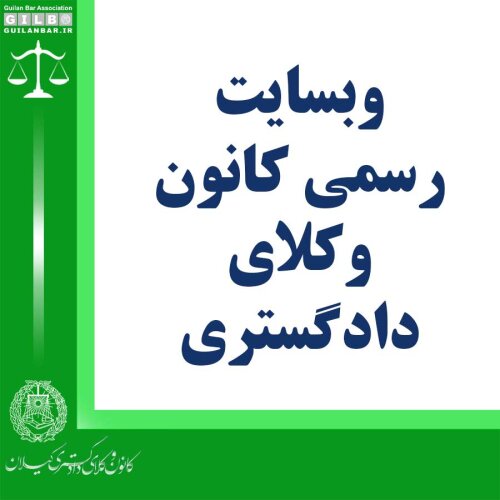Best Tax Lawyers in Iran
Share your needs with us, get contacted by law firms.
Free. Takes 2 min.
Or refine your search by selecting a city:
List of the best lawyers in Iran
About Tax Law in Iran
Tax law in Iran is governed by the Iranian National Tax Administration (INTA) and the Tax Affairs Organization. Iran has a progressive taxation system where individuals and businesses are required to pay taxes based on their income and profits. The main types of taxes in Iran include income tax, value-added tax (VAT), corporate tax, and property tax.
Why You May Need a Lawyer
You may need a lawyer for tax-related issues in Iran if you are facing an audit by the tax authorities, need help with tax planning or compliance, are involved in a tax dispute, or are looking to minimize your tax liabilities legally. A lawyer can provide valuable advice and representation to ensure that your rights are protected and that you are in compliance with Iranian tax laws.
Local Laws Overview
Some key aspects of local tax laws in Iran include:
- Iran has a territorial tax system where only income generated within Iran is subject to taxation.
- Individuals and businesses are required to file annual tax returns with the INTA.
- Corporate tax rates vary based on the type of business and its annual revenue.
- Iran has tax treaties with several countries to prevent double taxation.
Frequently Asked Questions
1. How is income tax calculated in Iran?
Income tax in Iran is calculated based on a progressive tax rate that ranges from 0% to 35% depending on the individual's income level.
2. What are the penalties for tax evasion in Iran?
Tax evasion in Iran can result in severe penalties, including fines, imprisonment, and the seizure of assets.
3. Are there any tax incentives for businesses in Iran?
Yes, there are tax incentives available for businesses in Iran, such as deductions for research and development expenses and exemptions for certain industries.
4. Can I appeal a decision made by the tax authorities in Iran?
Yes, you can appeal a decision made by the tax authorities in Iran by submitting a written appeal within a specified timeframe.
5. How can a lawyer help me with tax planning in Iran?
A lawyer can help you with tax planning by advising you on the legal ways to minimize your tax liabilities and maximize your tax savings.
6. What is the VAT rate in Iran?
The VAT rate in Iran is currently set at 9%.
7. How often do I need to file my tax returns in Iran?
Individuals and businesses in Iran are required to file their tax returns annually by a specific deadline.
8. Can a lawyer represent me in tax court in Iran?
Yes, a lawyer can represent you in tax court in Iran and provide legal assistance throughout the proceedings.
9. Is there a statute of limitations for tax audits in Iran?
Yes, there is a statute of limitations for tax audits in Iran, which is typically three to five years depending on the type of tax involved.
10. Where can I find more information about tax laws in Iran?
You can find more information about tax laws in Iran on the website of the Iranian National Tax Administration or consult with a local tax lawyer for personalized advice.
Additional Resources
For more information on tax laws in Iran, you can visit the Iranian National Tax Administration's website or consult with a tax lawyer who specializes in Iranian tax law. Additionally, the Tax Affairs Organization of Iran can provide guidance on tax-related matters.
Next Steps
If you are in need of legal assistance related to tax in Iran, it is important to consult with a local tax lawyer who is familiar with Iranian tax laws. They can provide expert advice and representation to help you navigate the complexities of the Iranian tax system and ensure compliance with local regulations.
Lawzana helps you find the best lawyers and law firms in Iran through a curated and pre-screened list of qualified legal professionals. Our platform offers rankings and detailed profiles of attorneys and law firms, allowing you to compare based on practice areas, including Tax, experience, and client feedback.
Each profile includes a description of the firm's areas of practice, client reviews, team members and partners, year of establishment, spoken languages, office locations, contact information, social media presence, and any published articles or resources. Most firms on our platform speak English and are experienced in both local and international legal matters.
Get a quote from top-rated law firms in Iran — quickly, securely, and without unnecessary hassle.
Disclaimer:
The information provided on this page is for general informational purposes only and does not constitute legal advice. While we strive to ensure the accuracy and relevance of the content, legal information may change over time, and interpretations of the law can vary. You should always consult with a qualified legal professional for advice specific to your situation.
We disclaim all liability for actions taken or not taken based on the content of this page. If you believe any information is incorrect or outdated, please contact us, and we will review and update it where appropriate.
Browse tax law firms by city in Iran
Refine your search by selecting a city.
















